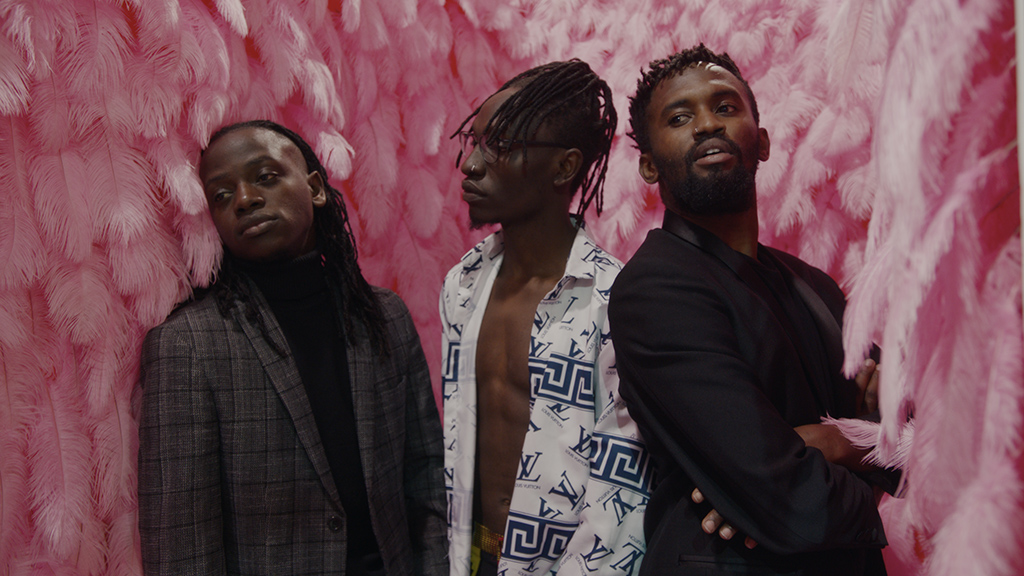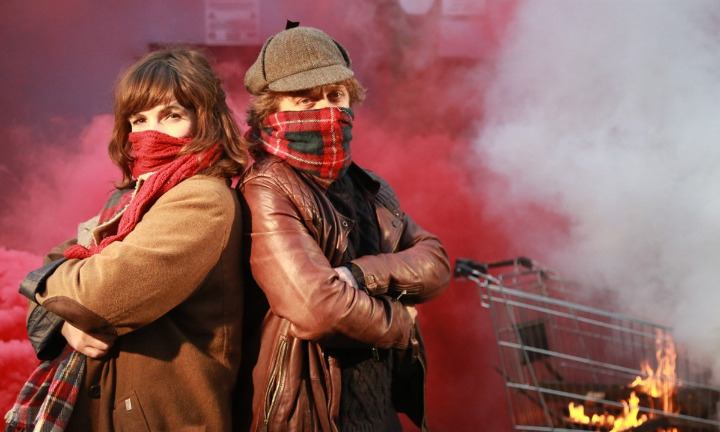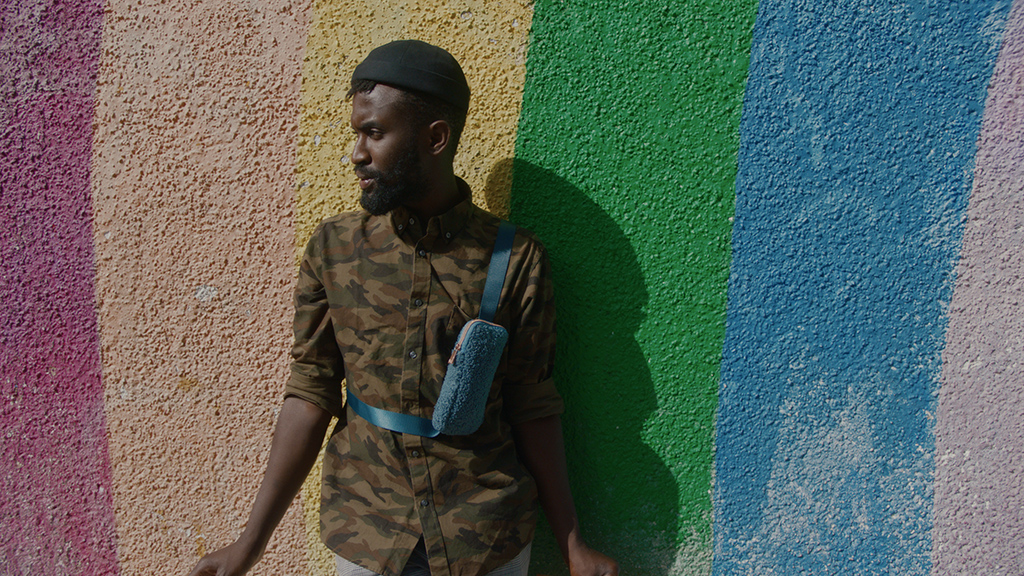
Someone Like Me
In 2015, the Vancouver-based filmmaking team of Steve Adams and Sean Horlor were looking for a queer-themed documentary subject. At that point, anti-immigrant and -refugee sentiments were being inflamed, especially south of the border.
But then one of Adams’ relatives posted a misleading meme on social media about refugees and immigrants and what a strain they are on government resources. Both Adams and Horlor could see this wasn’t just a problem in America, but that these attitudes were real in Canada too. They began developing the idea of a feature-length film about the Canadian system of refugee sponsorship, specifically with a queer refugee as the subject.
The result, the NFB’s Someone Like Me, came after years of research and approximately 15 months of filming, including during the pandemic. The film is shot vérité-style, following a group of sponsors, most of whom had never met before, help the youthful Drake resettle in Vancouver after facing repeated death threats in Kenya.
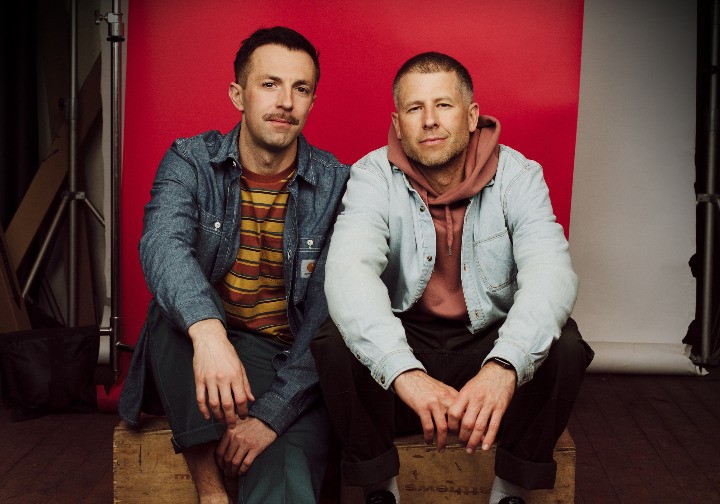
Organizers of the refugee sponsorship program were keen to have the film made. “I think they saw it as a valuable tool to show how the sponsorship project works,” says Adams.
When they began the process, they had no idea who the refugee would be. The sponsors were warned that the process of sponsorship is bumpy and not always easy—“not all rainbows and lollypops,” as Adams puts it.
And indeed it wasn’t. Early in the film we see a fraught meeting in which some sponsors express concerns about how much alcohol and pot Drake is imbibing. Some members push back, saying these are his choices to make and that it’s natural that he might be in party mode when first settling into his newfound freedom. Shortly after the scene ends, we learn some sponsors drop out.
“That was one of the scenes we had to deal with for the longest amount of time,” Horlor recalls. “We even tried not to put it in,” says Adams, “and we tried to tread lightly. But it didn’t make sense to not have it there.”
Adams and Horlor recognized that while this was about a specific refugee and his team of sponsors, it would also become a film about Canada’s refugee policies, which were gaining a great deal of attention for their far more empathetic approach to the refugee crisis. Both filmmakers knew that if and when things went wrong or looked bad, they had to include those moments in the film. “The comparison to the New York Times article painting a very rosy picture of Canada and its immigration policies got us thinking,” says Adams. “For sure, Canada is doing a decent job with its immigration and refugee programs, but Canada is also a country with a racism problem. Racism is woven into the fabric of Canada’s institutions and its legal systems. It’s systemic.”
When Adams and Horlor asked an organizer what one of the main things they thought Drake would face when he was settling in, the answer was immediate: racism. “And sure enough,” Adams recalls, “five months in and Drake experienced it. We took him shopping for skin cream on one of our shoot days and a security guard followed us through the drug store. That has never happened when it’s just Sean and I shopping together in the same store and it really goes to show the privilege we have as white gay men. Canada might be more progressive than the US, but there’s certainly a lot of work to do at home.
“If anything, I hope our movie shows people that every process is imperfect, every country imperfect, every human is imperfect, but it’s through those flaws that help us to see where progress still needs to be made.”
One of Ours
For filmmaker Yasmine Mathurin, old family friendships turned out to be the inspiration for her first feature documentary. When she was ten years old, she immigrated to Canada, first living in Calgary. There, she got to know Josiah Wilson, a Haitian-born boy who had been adopted by a Canadian couple. She said she first knew him as “my friend’s annoying brother.”
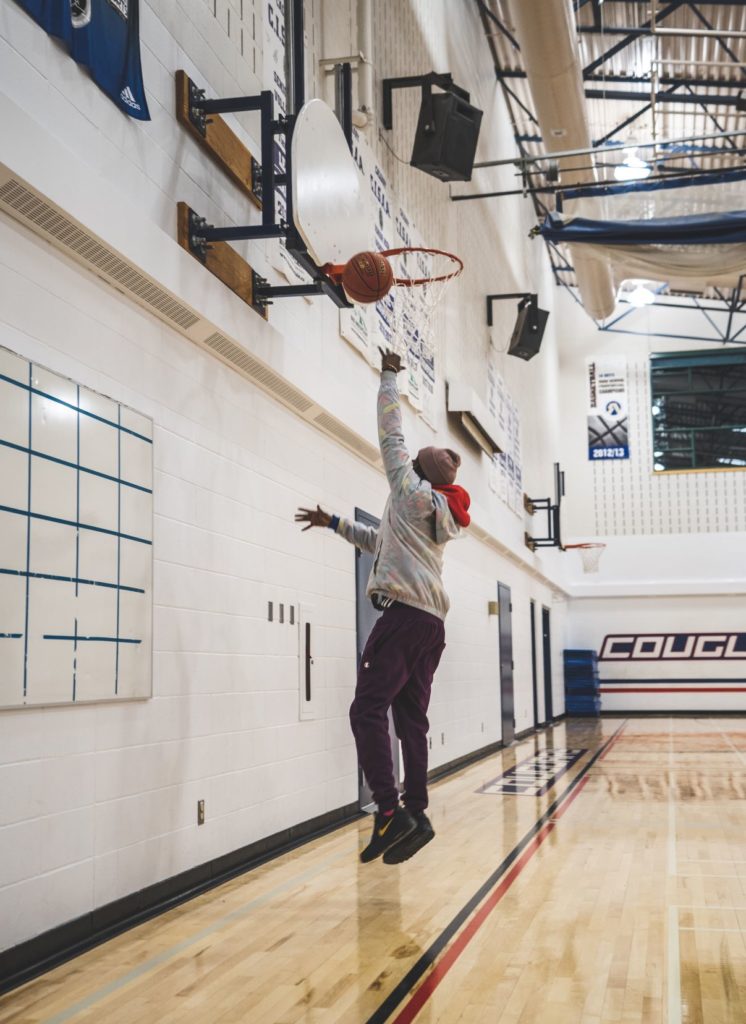
Years later, after moving to Toronto and working in radio, Mathurin stayed in touch with Josiah and his family via Facebook. And suddenly, she saw that he was making the news. Since Josiah’s adoptive father is Indigenous, Josiah was playing basketball for the Indigenous team. But the team’s managers evoked the issue of blood quantum, stating that because Josiah didn’t have a biological parent or grandparent who was Indigenous, he could not play for the team. The controversy exploded and Josiah was interviewed on national newscasts.
Mathurin describes creating the resulting documentary, One of Ours, as challenging. And that’s how I would describe writing about it, because the film features an epic number of revelations that are best not revealed in an article but discovered by audiences as they watch the film. The twists and turns become so intense that it’s hard to imagine that Mathurin first envisioned this film to be a short. She laughs about that thought now: “Yeah, that wasn’t going to happen. Definitely a feature.”
Josiah himself is an interesting person to capture, because he often seems to be holding back and not revealing his inner thoughts or feelings. That makes him something of an enigma, with Mathurin working hard to show us the young man’s perspectives on being shut out of the game he clearly loves dearly.
“When I started the project I felt like I was interested in this idea of healing, but also belonging,” Mathurin recalls. “The family knew it would be an emotional investment. The people behind the basketball tournament certainly didn’t seem happy about the making of the film. We offered them the chance to be interviewed many times, but they declined. They said they wanted to keep politics out of the game, but it was obviously too late for that.”
This being a first feature made it especially challenging for Mathurin. “The learning curve was more like a straight line. I wanted to make sure that I captured the nuances in this situation and in all of these relationships. There was a lot to add, there was a lot of context. I didn’t want to make a film with any of that missing.”
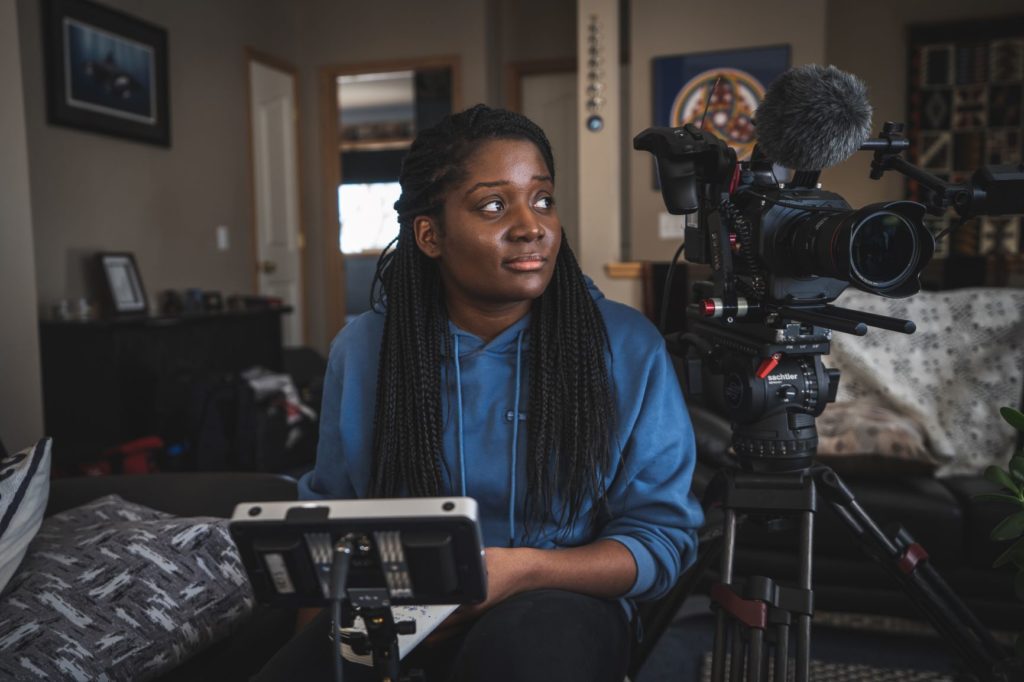
Adding to the challenge was the pandemic, which came midway through shooting. “We had to work with what we had, but luckily we had captured a lot of strong footage,” she says.
The focus of the film shifts as One of Ours progresses, but one of its main strengths is that it doesn’t offer a simplistic, pat ending. Instead, the audience is left with a sense of ambiguity. “It’s clear that there’s so much love between the family. But from the beginning I knew I was making a film about healing and healing is not linear. Film often is linear. So that was complicated, and presented the main tension and challenge of creating the film. There’s a lot of joy in the film, but there’s also a lot of pain.”
Mathurin was happy (and relieved) when she set up screenings for the Wilson family. “They were moved and there were tears, and they liked the film. I couldn’t be with them for the screening but knowing they liked it meant a great deal.”
The shifts and surprises in One of Ours are part of what made making it so stimulating: “I never thought a film about a basketball game would turn into a documentary quite like this.”
Someone Like Me and One of Ours both screen at Hot Docs 2021 and DOXA 2021.




